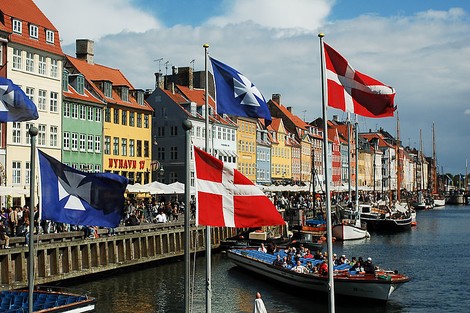Your podcast discovery platform
Curious minds select the most fascinating podcasts from around the world. Discover hand-piqd audio recommendations on your favorite topics.

piqer for: Health and Sanity Boom and bust Climate and Environment
Melissa Hutsell is an award-winning freelance journalist with a deep rooted passion for both community and international journalism. She was born and raised in Northern California, and has lived, studied, worked, and traveled in more 20 different countries. Melissa holds a Master's degree in Global Journalism from City University London, as well as degrees in Journalism and Globalization from Humboldt State University. Though she covers various topics as both a writer and editor, she specializes in business and cannabis journalism.
Podcast: Living Danishly, And Understanding Happiness
Scandinavian countries always top the list of the U.N.’s World Happiness Report, and this episode of Freakonomics Radio explores why.
Helen Russell left her life in London for a small, rural town in Denmark. The dark, cold days of winter made her question her move. She wondered whether the alleged happiness epidemic was real, and if so, why and how?
Along the way, Russell – author of “Living Danishly: Uncovering the Secrets of the World’s Happiest Country” – found answers; she also discovered her level of happiness increased.
According to Jeff Sachs, co-editor of The World Happiness Report, the field of economics took a bad turn when happiness was taken out of the economic model. In the U.S., it’s all about measuring gross national product (GDP), and income. But, Sachs explained, that’s a paradox; happiness doesn’t rise with an individual’s income.
Meik Wiking, CEO of the Happiness Research Institute in Copenhagen, explains certain factors that make Danes so happy. One of them is a strong social-safety net: universal healthcare, free education, shorter workdays, and parental leave for both parents. This contributes to a healthier population. It also builds trust between the government and its citizens, says Wiking, “here is a notion that if you fall, you will be picked up.”
Many social, and economic reasons contribute to the happiness levels in Denmark. And yes, paying high taxes is one of them. “Nine out of ten Danes are happily paying their taxes. There is an acknowledgement that we collectively invest in the public good, and that is fed back to people in terms of quality of life,” said Wiking.
Another cornerstone of Danish culture is hygge, a broad term for warmth, relaxation, togetherness, or otherwise creating a cozy atmosphere. “To Danes, hygge is perhaps what freedom is to the Americans,” said Wiking.
There’s much more to it than this. The episode also explores levels of happiness among immigrants, and the happiness-suicide paradox.
